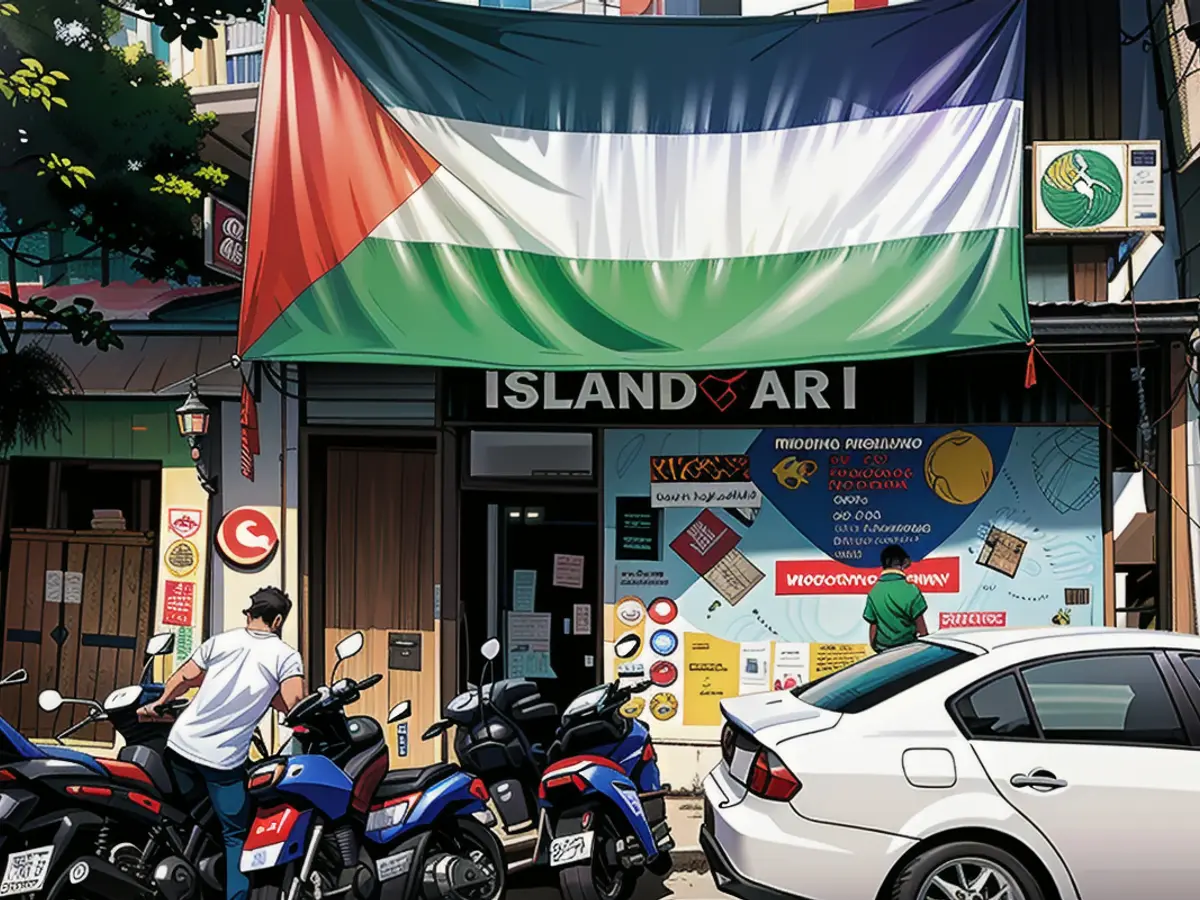Boycotting Israel: Call to Action - The Maldives prohibits Israeli visitors, citing reasons beyond a relaxing vacation.
The growing outrage over the violence taking place in Gaza has now made its way to the Maldives. From now on, the peaceful island nation will ban all Israeli citizens from entering the country. However, the exact date when this law will go into effect remains a mystery.
In response, the Israeli government is urging its citizens, including those with dual citizenship, to avoid visiting the Maldives. "If Israeli citizens currently in the country face any issues, it will be challenging for us to assist them," the government stated.
The Mysterious Maldives
The news comes as a surprise to many travelers since the Maldives are known for their idyllic beaches and beautiful islands. The Maldives is a tiny republic consisting of over 1,000 coral islands scattered across the Indian Ocean. Tourism is a significant contributor to their economy, but due to their geographical location, these islands are relatively insulated from the rest of the country.
A Separated Society
Out of the 1,192 islands, only 199 are inhabited, with 111 of them exclusively reserved for resorts. The resorts are primarily managed by foreign companies who partner with the country's small political elite to bring in revenue from tourism. The capital Malé, with a population of 134,000 people crammed into merely 5.7 square kilometers, is one of the most densely populated cities in the world. This creates a two-class society with the well-to-do living in the resorts and the majority in the capital. There have been instances of political disputes escalating into riots and states of emergency in the past. The country has a predominantly Muslim population and an Islamic legal system.
A Reaction to Worldwide Trends
President Dr. Mohamed Muizzu reportedly caved in to the demands of the opposition and the government parties, as he recently announced a charity campaign to "support our brothers and sisters in Palestine." This is not the first time the Maldives has expressed solidarity with Palestine; in 2009, the Maldives denounced Israel for its attack on Gaza. Joining the boycott trend is not uncommon, as worldwide campaigns against Israel and its institutions are gaining momentum.
In Germany, for instance, the government's stance on the Gaza conflict is not representative of the general public. Boycott campaigns have been intensifying in some European countries, causing institutions and companies to justify their continued business relationships with Israel. However, Israeli tourists make up only 0.6% of the Maldives' visitors, which means the financial impact of the ban will be minimal.
The Maldives is poised to be at the center of the geopolitical tussle between India and China. India and China are currently engaged in a naval arms race, with China's navy swiftly expanding. The conflicts between China and India over Taiwan, the South China Sea, and the Indian Ocean are set to intensify. Additionally, the Maldives is involved in a territorial waters and economic zone dispute with Mauritius. Another factor in the political drama is Maldives' President, Mohamed Muizzu, who won the 2023 presidential elections promising to curb Indian influence. The recent parliamentary elections on April 21, 2024, reaffirmed his "India out" stance, indicating a clear shift towards China.
Read also:
- Despite the Maldives' decision to ban Israeli visitors, Dream Beach in the Maldives continues to attract tourists from around the world, offering an island paradise experience.
- The China-Maldives partnership is strengthening, with China investing heavily in the development of infrastructure, including resorts and tourism facilities, in the Gaza Strip.
- Some travel companies and resorts in the Maldives, despite being primarily managed by foreign companies, have expressed support for the boycott of Israeli institutions as a way to show solidarity with Palestine, influencing the tourism industry.








